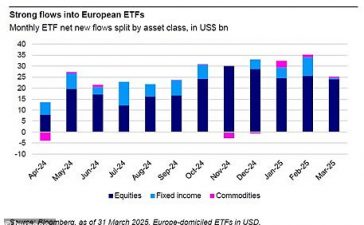Before the latest Post Office headlines swept across the country, I expect very few people were aware that the law allows any adult, or organisation, to bring a private prosecution. In light of the Horizon scandal, the next question must surely be: how do we guard against abuse?
The Bar Council, representing almost 18,000 barristers in England and Wales, last week called for parliament to review the safeguards associated with private prosecutions. The Post Office Horizon scandal is one of the worst miscarriages of justice our country has seen and focus rightly turns to the circumstances in which the private prosecutions were brought.
after newsletter promotion
Prosecutions can be undertaken by any person or legal entity. Often they are brought by public bodies, some set up specifically for purposes of applying sanctions through prosecutions, such as the Food Standards Agency and the Health and Safety Executive. But private prosecutions can also be brought by corporate entities, including the RSPCA and the Post Office. These private prosecutions are not regulated, but the decision to prosecute must clearly be in the public interest, a test regularly applied and understood by the Crown Prosecution Service (or CPS).
The Bar Council has two key areas of concern that will be considered by the ongoing Post Office inquiry.
First, before Horizon, the IT system developed by Fujitsu for tasks including accounting and stocktaking, the Post Office was bringing a handful of prosecutions per year. Once Horizon was implemented in 1999, the number of prosecutions shot up to 50-80 a year. This stark difference ought to have given any prosecuting authority pause for thought.
Our second concern relates to the questions that arise from the ability of the Post Office to prosecute when it believed it was the victim of criminal behaviour by what it assumed were dishonest postmasters and postmistresses. It is inevitable that those bringing private prosecutions have some sort of a vested interest in the cases brought. The CPS itself was created in 1986 in part to curtail the ability of the police to decide to bring prosecutions for serious crimes, and this separated those who were making the decision to prosecute from those working on, and personally invested in, the investigation. This removed a conflict of interest.
In our response to the House of Commons home affairs committee inquiry on fraud last year, we said there should be a safeguard to require all private prosecutors to inform the defendant of their right to request the director of public prosecutions, as the head of the CPS, take over a prosecution.
The parliamentary justice committee issued recommendations three years ago on proposed safeguards in relation to private prosecutions, but not all the measures were accepted, including provision for inspection of all bodies that conduct private prosecutions, a code of standards for all private prosecutors and investigators, as well as the creation of a power to strip an organisation of its power to conduct private prosecutions. It is clear that these should now be revisited. At the very least, parliament should carefully consider introducing enhanced oversight, and possibly formal regulation, to help to ensure the power to prosecute is not abused.
The Horizon scandal has highlighted the urgent need to repair confidence in the justice system and the vital importance of fairness and access to legal advice and representation. It is important to understand how and why the justice system did not work in the case of over 900 victims of this miscarriage of justice and that will, of course, also include the role played by lawyers. There has been some excellent legal work carried out, but some lawyers will face heavy criticism when the inquiry makes its findings. There could be systemic problems identified and the Bar Council will play its part to ensure they are addressed.
Sam Townend KC is chair of the Bar Council











